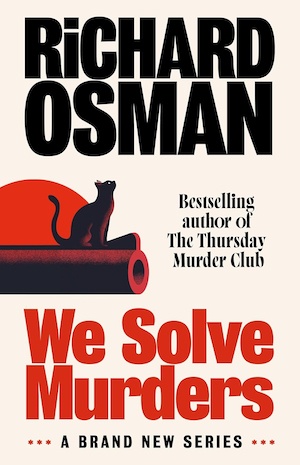Chris Petit is a fascinating writer. His political novels are always personal stories but with a wider focus. Whether they’re the historical he’s known for or spy thrillers like Ghost Country, his books touch on the state of the nation. Sounds intense, even demanding, and they are, but worth it too. Since The Psalm Killer in 1999, which explored the troubles in Northern Ireland, Petit’s narratives have blurred the boundaries between the immediate story and the wider cause and effect. In Ghost Country, Charlotte Waites is on a personal journey to uncover a killer and navigate the aftermath of a massive intelligence failure. Again, the emotional heart of the novel is inextricably linked to factors in society and historical events.
Charlotte is spending a few days with her father over Christmas. They have never discussed his career in military intelligence, she’s never even asked if he was behind her getting a job in the SIS after university. Returning to the Analysis and Data Department at GCHQ in Cheltenham, Charlotte has a new boss. Hopkins is a bully and rumours of redundancies fill the air. Charlotte is asked to assess a death threat to Michael McCavity, a secretary of state. On investigation it doesn’t seem credible.
The problem is that McCavity is then assassinated on a London street near his home in broad daylight.
National security is a high stakes game and it appears Charlotte dropped the ball. The potential ramifications for her career are catastrophic. Hopkins is already rewriting the departmental narrative to avoid any blame. Whitehall departments are similarly working to dodge culpability. Could Charlotte have prevented the assassination of a government minister by taking this threat more seriously? Hindsight is a wonderful thing. Hundreds of pieces of information cross her desk every day. Now with everyone picking over the bones of what happened and coming up with theories and suspects, this is a matter of survival for Charlotte.
Initially the investigation focuses on Islamist terror groups. The Metropolitan Police, government agencies and the security services are interested in marking their territory. There are bigger budgets to be had for success. Charlotte’s failing is exposed but contrary to expectation she is given a role in the inquiry, taken under the wing of a powerful Whitehall mandarin, Moffat, who doesn’t seem to mind the stigma attached to his new protégé.
Moffat says Charlotte’s knowledge of the politician’s life and his connections to organisations capable of this kind of brazen act of terrorism is invaluable. McCavity could have been a target for a number of reasons. He was outspoken on Iraq, Afghanistan, Brexit and immigration, and had links to a Russian oligarch. Plus there are the nasty rumours of child abuse. The assassin even used the Russian’s house as a firing point to gun down McCavity.
When Charlotte weighs up the usual suspects terror threats they don’t add up and leads take some unexpected turns. Only a journey into the past – Ghost Country –will provide answers. But the truth behind the killing may lie closer to home than she ever imagined. Charlotte wonders who she can trust, she knows she has to watch her back but who is really pulling the strings behind the scenes? Hopkins wants to know what’s going on with Moffat and Charlotte wants to avoid getting caught up between the two bosses.
Charlotte draws up a list of suspects with the skills to pull off this kind of assassination. That leads to old soldiers rather than jihadis. One of them is an old contact of Charlotte’s and she’s sent to Northern Ireland to track him down. What she finds is eye opening, both personally and professionally, and it’s no longer just her career in danger. Then there’s the question of where her father’s past fits into the picture.
The key question is: who benefits from McCavity’s death? There are no easy answers and this labyrinthian affair involves everything from the Troubles to our current political woes. For Charlotte it’s about living up to her father’s legacy and coming to understand that his past is a fraught affair. Subtly, a personal tale begins to reflect the wider issues in British society, the weight of history and whether the truth is ever attainable. No storyline is free of vested interest and alternative narratives abound.
As Mick Herron uses satire to comment on government, the lack of values, the corruption of the individual in a crumbling society Petit achieves the same in his dark fiction. Here is an author interested in the psychology of organisations and people, the way in which one subsumes the other. It’s a bleak – but who can say unrealistic? – view of the world.
This is a complex thriller but we are subtly drawn into the layered story. Ghost Country is elegantly constructed and gripping, both emotionally and intellectually. Chris Petit’s novels have always been original and thought provoking, none more so than Ghost Country. There’s a touch of le Carré, a dash of Greene. This is a superior literary thriller.
For a lighter take on the spy world there’s A Prince and a Spy by Rory Clements. Or a classic reimagined for TV, The IPCRESS File.
Simon & Schuster
Print/eBook/Kindle
£9.99
CFL Rating: 5 Stars







